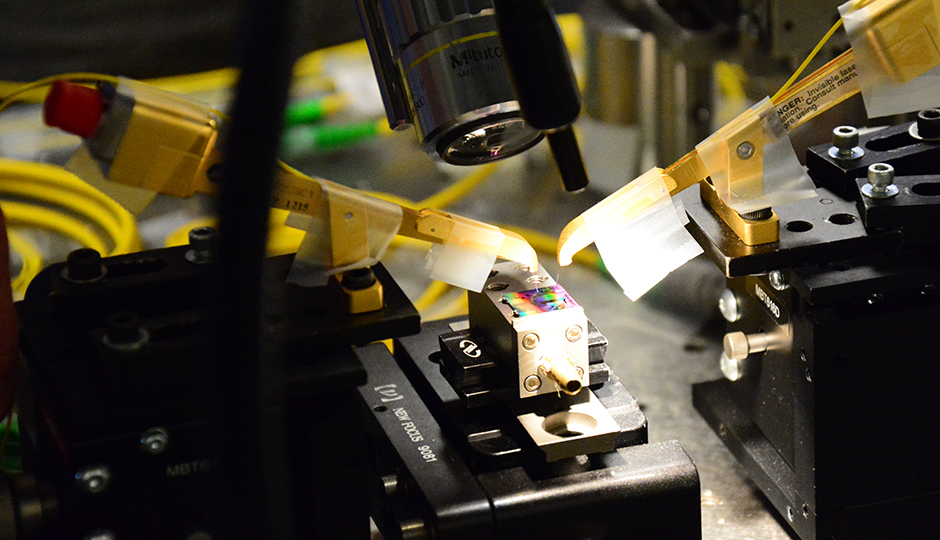Traditional electronic components are becoming too slow to process the massive volume of high-speed data signals flooding the information highway.
Over time, this could result in emails getting lost and websites taking an inordinate amount of time to loan in Wi-Fi. Physicists and computer scientists are increasingly turning to photonic technologies, which are more efficient at processing data traffic.
Physicists and computer scientists are increasingly turning to photonic technologies, which are more efficient at processing data traffic.
Rhys Adams, a physics professor at Vanier College in Montréal, is interested in more than just improving performance: he is seeking to demonstrate that photonic systems make it possible to shrink computer components and reduce energy consumption. Some of Adams's students assist him in the laboratory, giving them a taste of university-level research.
In McGill University's electrical engineering laboratories, Adams is testing an experimental setup to filter microwave signals using silicon nanowire, a new optical data highway developed by his university colleagues. The project's ultimate goal is to replace metres of conventional optical fibers and filters by silicon nanowires and nanophotonic filters that fit onto a chip the size of a fingernail!
But Professor Adams's mission goes beyond the advancement of knowledge. The researcher performs photonic demonstrations in his classes, transmitting his passion for research and technology while training the next generation of scientists. And to stimulate his young students' scientific curiosity, he provides them with the opportunity to gain research experience in the laboratories of McGill University. Every summer, several student interns assist him with his research and contribute to the production of research publications. Nothing less!




